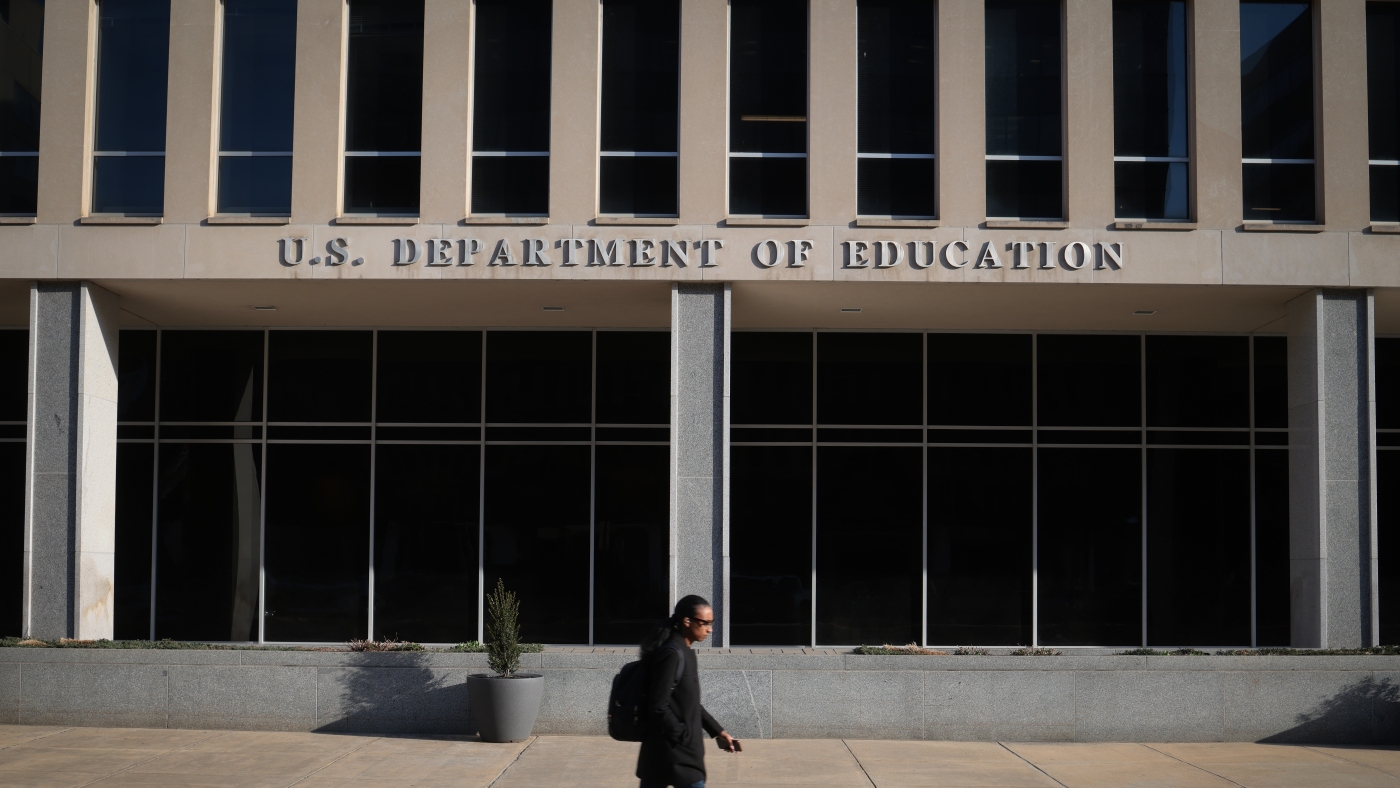
Department of Education headquarters in Washington on March 12. A federal judge ruled that the Trump administration violated the First Amendment rights of Education Department employees when it replaced their personal out-of-office notices with partisan language.
Win McNamee/Getty Images
Hide caption
Toggle caption
Win McNamee/Getty Images
A federal judge ruled that the Trump administration violated the First Amendment rights of Education Department employees when it replaced personal out-of-office email notices with partisan language blaming Democrats for the government shutdown.

“When government employees enter public service, they do not give up their First Amendment rights,” said U.S. District Judge Christopher Cooper. He wrote in his decision on Friday, “and they certainly did not sign up to be a billboard for the partisan views of any particular administration.”
The lawsuit was filed by the American Federation of Government Employees (AFGE).
“This ridiculous stunt by the Trump administration was a clear violation of the First Amendment rights of Department of Education workers,” Rachel Gettleman, president of AFGE Local 252, which represents many Department of Education workers, said in a statement. She added that this is “one of many ways the department’s leadership has threatened, harassed and demoralized these hardworking public servants in the past 10 months.”
Cooper ordered management to immediately restore personal email notifications for out-of-office union members. He warned that if this could not be done, management would have to remove partisan language from the accounts of all employees, whether they are union members or not.

According to court records, in the lead-up to the government shutdown, Education Department employees were required to create an out-of-office message to use their government email accounts while workers were on vacation. The department even gave employees template language they could adapt to that simply said:
“We are unable to respond to your request due to the passage of the Department of Education appropriations. We will respond to your request when the appropriations are enacted. Thank you.”
But, on the first day of the shutdown, the department’s deputy chief of staff for operations skipped personal messages to staff and replaced them with this partisan auto-response:
“Thank you for contacting me. On September 19, 2025, the House passed H.R. 5371, a clean, continuing resolution. Unfortunately, Senate Democrats are blocking the passage of H.R. 5371 in the Senate resulting in the appropriations falling through. Due to the interruption in appropriations, I am currently on leave. I will respond to emails as soon as government functions resume.”
While the letter was written in the first person, several employees told NPR that they did not write it and were not told that it would replace letters they wrote outside the office.

At the time, Maddy Biedermann, deputy assistant secretary for communications, said in a statement to NPR: “The email reminds those who reach out to Department of Education staff that we cannot respond because Senate Democrats refuse to vote for a clean registry and defund the government. Where is the lie?”
In his decision, Cooper criticized the department “for turning its workforce into political spokespeople through their official email accounts. The department may have made matters worse, but it also overestimated its power.”
The department did not respond to NPR’s request for comment on the ruling.
“Neutrality is the foundation of the federal civil service system,” Cooper wrote, a principle that Congress enshrined in the Hatch Act.
The aim of this law, passed in 1939, was to protect public employees from political pressure US Office of Special Counsel“To ensure federal programs are administered in a nonpartisan manner.”
